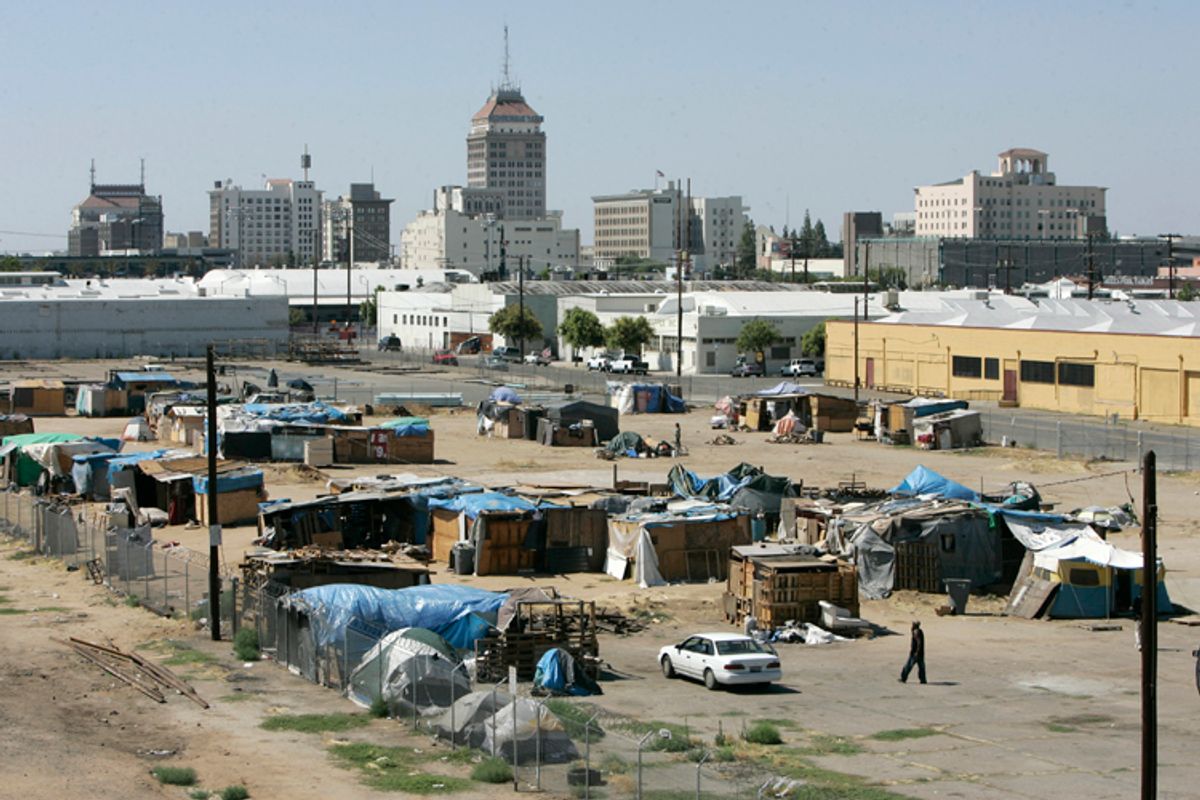We’re starting to prep for “poverty day” around these parts–it’s next Tues, 9/17–the Census Bureau will release the poverty and household income results for last year. There’s lots of rich data and both CBPP and yours truly will have much to say about the results.
But in prepping for a presentation on this stuff for tomorrow, I made the graph below, just showing the sharp increase in the official poverty rate over the great recession. I’ve noted in many posts the limits of the official measure, most importantly re the dates shown in the figure, how it leaves out many of the safety net benefits that expanded to offset the downturn.
But to explain what struck me in gazing upon this simple figure below, we’re actually better off looking at the incomplete official rate. How can it make any sense to blame the poor themselves, as per Charles Murray, Paul Ryan, along with pretty much the rest of the House R’s caucus, for this increase in poverty in the midst of the worst downturn since the Great Depression?
How is it that those of us trying to argue on behalf of providing the poor with the opportunities they need are so often back on our heels, defending the increase in the SNAP (i.e., food stamp) rolls against those who claim the safety net is a hammock? Did the poor come up with the financial “innovations” that inflated the housing bubble? You know, the one that imploded and took the economy down with it…how about the dot.com bubble? Was that also the dastardly work of the bottom 20%?
Perhaps I’m a little sensitive after this debate earlier today on CNBC. Or maybe it’s the juxtaposition of the finance sector’s recent profitability and the flack the $15/hr fast-food strikers are getting from the economic elites.
But really, it’s time to get on offense here, my friends. Listen, elites: you want less people on food stamps? Fine…then stop screwing up the economy. Then we’ll talk. Until then—until we’re back around full employment, until you stop blowing bubbles, I really don’t want to hear from you about hammocks and the bad decisions of the poor. You want to talk job creation, infrastructure investment, skills training, mobility, opportunity—I’m all ears. Otherwise, quiet down and get to work.
OK…rant over.


Shares